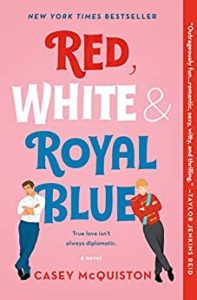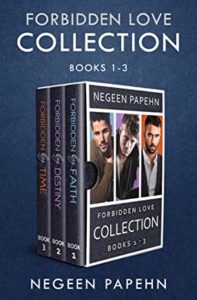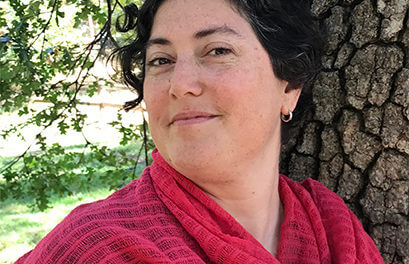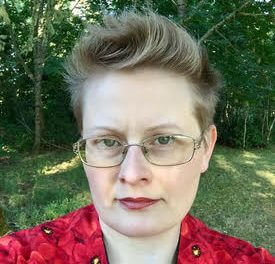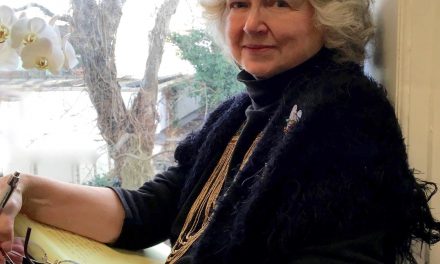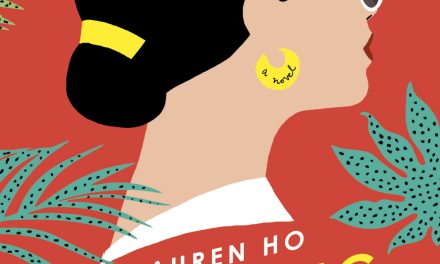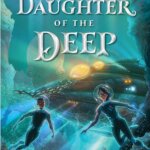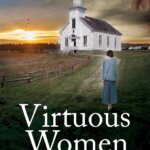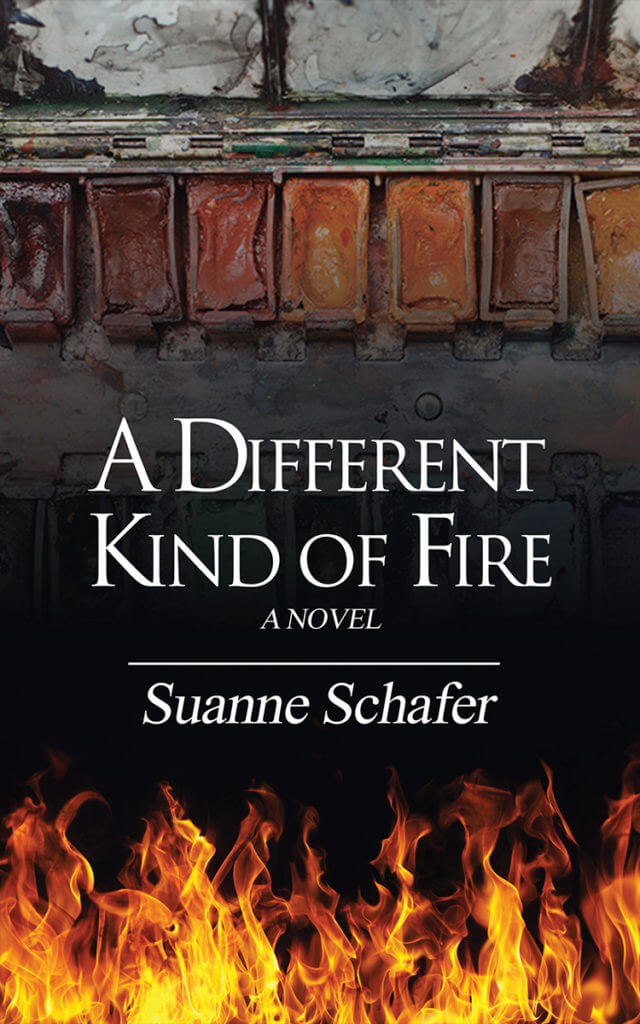Today I have the pleasure of introducing Negeen Papehn, an #ownvoices author, filling her stories with Iranian women. She was born and raised in southern California, where she currently lives with her husband and two boys. She wasn’t always a writer. A graduate of USC dental school, Negeen spends half of her week with patients and the other half in front of her laptop. In the little time she finds in between, she loves to hang out with her boys, go wine tasting with her friends, throw parties, and relax with her family. She writes own voices contemporary romances where she loves to show her readers a glimpse into her Iranian heritage. Her books have been nominated for the CRW Stiletto and the InDTale Rone awards.
By the way, Negeen, my parents lived in Tehran during the early 1970s, so I have three Persian miniature paintings scattered through my house as well as some lamps made of engraved brass. My dad wore his cowboy hat and boots throughout the city, and kids would follow him calling out “John Wayne.”
SS: Negeen, please tell us about your journey to becoming an author.
NP: I can remember being a writer in some form or another from the time I was a little girl. At twelve, I was determined to write my own romance novel. Armed with a spiral notebook and a handful of sharpened pencils, I set out to accomplish my goal. Honestly, I didn’t get very far, my adolescent attention span short-lived. But as I got older, I found my love for poetry and filled pages with my feelings throughout high school. Eventually, that evolved into music and original ballads. But once I got to college, life became more hectic, and I threw myself into my studies. Grad school, marriage, and real life took over. Before I knew it, I found myself in my thirties, running ragged in my day job, raising two babies, and losing all sight of the girl I used to be. I hadn’t picked up a pen or written a word in decades and the realization was suffocating. I didn’t really start writing again till my mid-thirties and I’ve been at it since then. It’s therapeutic and gives me a creative outlet that fills my need to have something for just myself.
SS: Is your day job a distraction, or does it add another element to your writing?
NP: It can be both. I’m a dentist by trade, which is the furthest from a writer you can get! When work is busy, it leaves me little room to catch moments to write, and even less energy to think storylines through. Especially since I’m also a mom, so my job doesn’t end with the last patient. Some evenings I don’t get to sit down till well past 10 PM. On those nights, my brain is too tired to do anything more than collapse on the couch. On the other hand, my job requires that I interact with a lot of different people, and in doing so, I get to hear some really amazing stories. I’ve found myself using what I learn as inspiration for what I create.
SS: If you have children, does being a parent influence your writing? To what extent?
NP: I’m a mother of two boys, twelve and fourteen years old. Being a mom definitely influences my writing in that it helps me to be well-rounded when creating my characters. My novels center a lot on family dynamics, a key factor in understanding the Iranian culture. Having the experience of having my own children allows me to understand the various parental perspectives, and therefore, create a more authentic story.
SS: How has Covid-19 affected your writing? Your future writing? Your life? Your family?
NP: Covid-19 has affected everything. It’s redefined all aspects of life for most of us, I think. As far as what it’s influenced for me personally, I’ve found myself really burnt out lately and struggling to get any writing done. In the thick of the first year, I was too anxious, and then too tired once I got back to work and had to deal with N95s and all that gear, to even think about putting words on a page. As time progressed, it just got worse, and now I feel a deep-rooted exhaustion all the time. It’s been really tough for me to shake it. Covid has also harshly adjusted my kids’ social lives, leaving them at home and alone a lot more than they used to be. They’re bored and require more of my attention. I find myself with a lot less time to do the things I want these days.
SS: Where is your book set? How did you decide on the setting? When is it set?
NP: All my books are set in Los Angeles because that’s where I live and I’m familiar with the area. They’re also all modern day as well. Honestly, I’m not big on having to do a ton of research. When I have a story idea, I just want to jump in and get writing, so it’s easier for me to set it up in a scenario that requires minimal leg work. My characters do travel, but researching for a few scenes in a new location is minimal compared to setting the whole story somewhere foreign that I’ve never been or a time period I didn’t live through.
SS: What’s something memorable you have heard from your readers/fans? What’s been the best compliment?
NP: Writing contemporary romance with Iranian women is my way of shedding light on my culture, allowing Persian women to see themselves reflected in the stories they read. We are so underrepresented in the modern world of fiction. The only middle-eastern characters I’ve come across in books have always been set overseas. I wanted to create stories about women like myself, living normal, everyday American lives, so my favorite responses are those that validate I’ve accomplished that goal. I’ve had multiple readers/reviewers reach out to me and thank me for representing our culture in a way they’ve never experienced. I’ve also had some tell me that they’ve connected with my characters’ lives in a way that’s made them feel seen and less alone. It’s amazing to have my work create those experiences for readers. That’s why I keep going, pushing along to create this niche I feel we so desperately need in the romance world.
SS: In what circle of Dante’s Inferno would you place the average Amazon reviewer?
NP: This question made me laugh. I will say, there are definitely some that deserve the depths of the Inferno, but honestly, I don’t pay much attention to my reviews. With my debut, I would comb the internet and read every single one. When a bad review would pop up, it would break my heart and kill my confidence, giving my imposter syndrome a very loud voice. But I’ve been at this publishing thing for a little while now, and I’ve realized that it’s not my responsibility to carry what someone else thinks about my stories. I just need to write them. What another human being feels about what I’ve written isn’t my worry to have. That’s their opinion and not everyone is going to love my books. I stopped reading reviews a long time ago. I haven’t read one review for my latest release, Set to Music. The only reviews I know about are the ones my friends send me because someone said something really great about it. Otherwise, I’m perfectly satisfied not knowing what people are saying.
SS: You time-warp fifty years forward to find something you created has become a trope or buzz-word. Do you feel cheated of royalties, or vindicated as a genius? Vindicated as a genius.
NP: That’s the ultimate form of flattery if you ask me.
SS: Do the parts of your story that move your readers most, move you as well? Or does your special position as Creator give you a different ear for the highs and lows of the tale?
NP: My stories definitely move me. When I write, I actually become my character. It’s my version of method acting. Any emotional pieces become my own. I feel every up and every down. Sometimes, I have to take a break from writing because it gets too emotionally draining on me. I tap into my own experiences to create my characters, so it’s really easy to get lost in the feelings, especially since I’m all about the heavier feels when I create storylines.
SS: What advice would you give aspiring writers?
NP: Get out of your own way. There’s never a time, in my opinion, that’s as free and open as writing your first novel. The debut is purely heart and creativity because we don’t yet know all the rules and boxes that apply in the publishing world. The more books we write and the more we publish, the more jaded it all gets. I feel like that openness to let the words flow uninhibited, becomes muted because we’re too busy writing to market and making things fit within these imaginary guidelines. Worrying about agents and book deals, becoming insecure with reviews and comments. It dampens all the amazing light in the process. My advice is to try and hold onto that freedom as best as you can and just write what’s in your heart. Worry about all the other stuff later. Because that’s what’s going to create the best version of the story that you want to tell. And the story will never be perfect. So if you’ve done your due diligence, edited it over and over, then take the leap. Submit it and see what happens. Sometimes, writers can get so boggled down trying to make something perfect that they never actually get it out in the world. Your stories deserve a chance, so take it and let the universe do the rest.
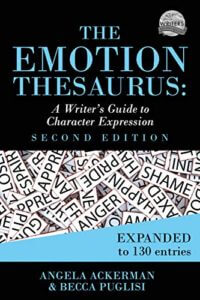
NP: I love the Emotion Thesaurus by Angela Ackerman and Becca Puglist
Definitely has helped me with my writing.
SS: What’s the most difficult thing about writing characters of the opposite sex?
NP: Finding their distinct voices. I write in first person present and I have dual points of view in my Rockstar romance series. The toughest part about that, was getting into my male character’s head space and trying to become him through the way handled himself. Men and women naturally react differently to the same situations, and making sure my characters were authentic was probably the hardest part.
SS: How important are romance tropes? Do you ever feel the need to break free of their constraints?
NP: It really depends on the goals. Through my publishing journey, I’ve found that they are pretty important when trying to publish traditionally. Agents and publishers need to put the story in a marketable box and so the trope needs to be clear. However, in regards to creating a good story, I don’t think they are as imperative. Sometimes it’s nice to break free and write what you want. I know I have.
SS: What is your favorite trope? Why?
NP: I seem to really dig the forbidden love trope because all of my books circle around that one. There’s something about losing it all in the name of love that makes the stakes so high it’s hard to breathe. I love the tension and the internal conflict is brings. I also love writing deeply emotional stories. The kind that break your heart and then stomp on it. The forbidden theme allows me to really get into all of that loss and struggle. I’m definitely a sucker for all of that.
SS: Can a beta male be a great hero?
NP: Yes! I know there’s all this hype about the bad boy alpha with his hard edges and brooding personality, and that’s definitely hot, but there’s something to be said about the kind, soft edges of the beta. He’s able to understand the heroine in a different way, making everything feel so dreamy and romantic. My hero in Forbidden by Destiny is definitely a beta, and readers absolutely loved him in Forbidden by Faith, which is how he ended up with his own story.
SS: What more do you think can be done to encourage diversity in romance?
NP: I think there has definitely been a push in publishing toward marginalized voices and stories. I would like to see that net expanded though, to include more of us that aren’t in the larger groups. As an Iranian contemporary romance writer, it’s tough to shine bright when there are so few of us. I’d also love to see readers become more open to picking up stories with characters of ethnicities that are underrepresented. That would also require being able to view the characters in a different perspective. For example, all my main characters are Iranian women. I know some readers find it off putting by how deeply they care about the opinions of their family, to the point that it’s a turn off for them. But that’s how things work in my culture, and you need to be open to understanding that if you pick up one of my books.
LIGHTNING ROUND:
Describe your books in 3 words: Intimate, sexy, emotional
Favorite thing about your genre? Getting into the nitty-gritty feelings. I love writing about broken hearts and all that they encompass.
A genre that you would love to write: Woman’s Fiction. My current WIP is veering in that direction.
When writing, are you a night owl or morning person? I’m definitely not a morning person. I used to be a night owl, but I’m finding I’m too tired to think straight late at night. These days, I’m more of a mid-day person.
Pantser or Plotter? Plantser. I’m not fully one or the other. There is definitely some plotting that goes into the early stages but it’s not as extensive as breaking it down scene by scene.
Book you’re currently reading: Red, White & Royal Blue by Casey McQuiston
Your favorite guilty pleasure: Ice Cream.
Number one book boyfriend or girlfriend is: That’s too hard! I have so many book boyfriends LOL.
Your favorite genre of romance: Second chance romances. Which is funny, because I haven’t actually written one yet. But it’s on my list!
********************

********************
You can follow Negeen on social media here:
Website | Twitter | Facebook | Instagram | Amazon Author Page | Goodreads | BookBub
********************
This post contains Amazon Affiliate links. As an Amazon Associate, I may earn a small amount from qualifying purchases.

